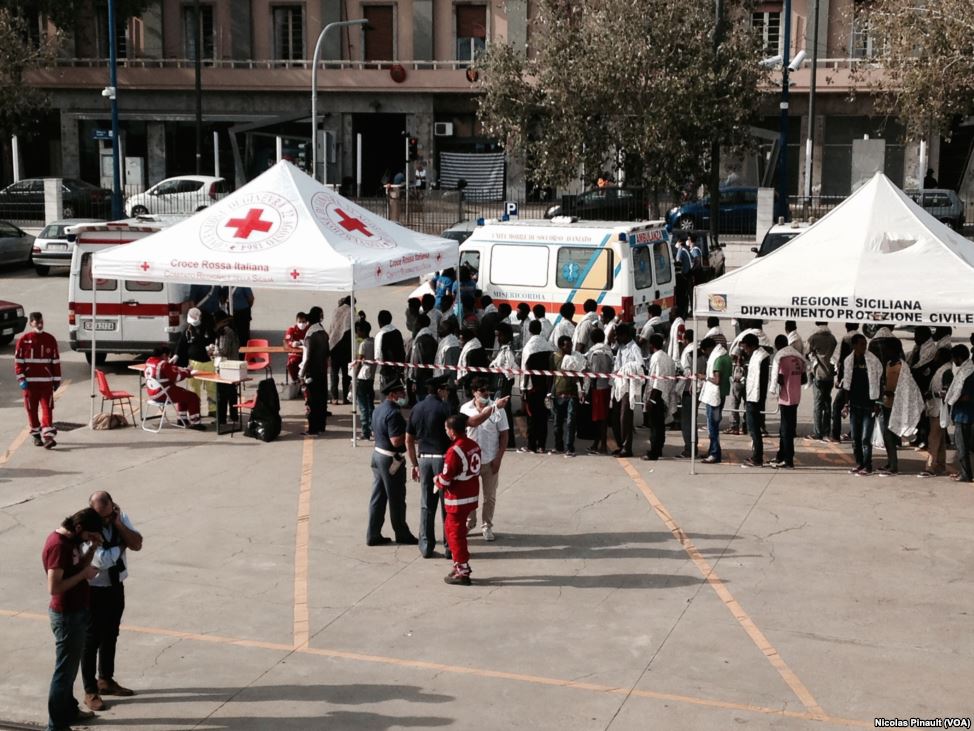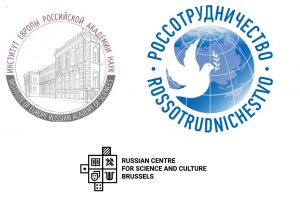Russia and Europe in the context of global migration (fully booked!)

Date
25 March 2019
Location
Egmont Palace, Place du Petit Sablon, 8bis, 1000 Brussels
Fully booked.
Over the centuries and millennia, migration has shaped the world’s history and geography. However, never before has it been so prominent in people’s preoccupations and on political agendas as at present. In Europe (West, Central and East) migration ranks high in the list of political and social priorities. Numerous seminars, articles and books have been addressing all possible aspects of migration. In this seminar we aim to compare how migration is perceived in Russia and in the European Union and what kind of approaches have been developed. Our aim is to identify what we can learn from each other and whether areas of further cooperation exist.
In the first session we will look at migration from a more global perspective and examine the Russian and EU perspective on the migration flows as well as the issues of integration of migrants.
In the second session we will examine more in detail how flows of permanent and temporary migrants exist in Russia and the EU, what specific issues of integration arise and how the authorities (and civil society organisations) reactively and pro-actively deal with the challenges.
Programme
11:00: Participants Registration
11:30: Light lunch buffet for the participants
12:00 : WELCOME
- Johan VERBEKE, Ambassador, Director, Royal Institute of international relations (Egmont Institute)
- Alexander TOKOVININ, Ambassador Extraordinary and Plenipotentiary of the Russian Federation to the Kingdom of Belgium
12:15: KEYNOTE SPEECHES
- Eleonora MITROFANOVA, Ambassador, Head of the Federal Agency for the Commonwealth of Independent States, Compatriots Living Abroad, and International Cultural Cooperation (Rossotrudnichestvo)
- Jean-Luc BODSON, Ambassador, Director, Department of climate and environment Ministry of foreign Affairs of Belgium
12:45: Panel Discussion – 1: The “Migration Boom” of the XXI Century: how does it change society?
Moderator: Marc Franco, Senior Associate Fellow EGMONT Institute
- Causes and features of the “migration boom” at the turn of the millennium – including crisis in the MENA region and increased migration challenges in EU and in Russia
- Migration and the issues of integration and identity in EU and in Russia
Speakers:
- Prof. Andrey Lisitsyn-Svetlanov, academician, Chief Researcher for the Institute of State and Law of the Russian Academy of Sciences
- Prof. Vladimir Zorin – Deputy Director of the Miklukho-Maklay Institute of Ethnology and Anthropology of the Russian Academy of Science
- Prof. M. Martiniello, Directeur du Centre d’Etudes d’Ethnicité et de Migration (Université de Liège) et Directeur de recherches au FRS-FNRS
- Prof. Johan. Wets, HIVA – Research Institute for Work and Society , KULeuven
Q&A session
14:15: Coffee break
14:45: Panel Discussion – 2: Experience in Solving External Migration Problems. Paths for Pan-European Cooperation
Moderator: Alexey Gromyko, Director of the Institute of Europe (Russian Academy of Sciences), Corresponding Member of RAS
- How can the problem be characterised in the EU and in Russia
- What policies are being implemented in EU and in Russia? how successful?
Speakers
- Yuri Kolesnikov – Conseilor, Department for Humanitarian Cooperation and Human Rights of the Russian Foreign Ministry
- Prof. Dirk Jacobs, Directeur Groupe de recherche sur les Relations Ethniques, les Migrations et l’Egalité (GERME) ULB
- Dr. Rainer Muenz, Advisor on Migration and Demography to the European Political Strategy Center
- Julietto Chiesa, Italian Journalist and Politician
Q&A session
16:15: CONCLUSIONS – OPPORTUNITIES FOR COOPERATION
- Alexey Gromyko, Director of the Institute of Europe (Russian Academy of Sciences), Corresponding Member of RAS
- Marc Franco, Ambassador, Senior Associate Fellow Egmont Institute and Russian speaker (tbc)
Simultaneous interpretation Russian-English
The meeting is on personal invitation only.
(Photo credit: Wikimedia commons)
